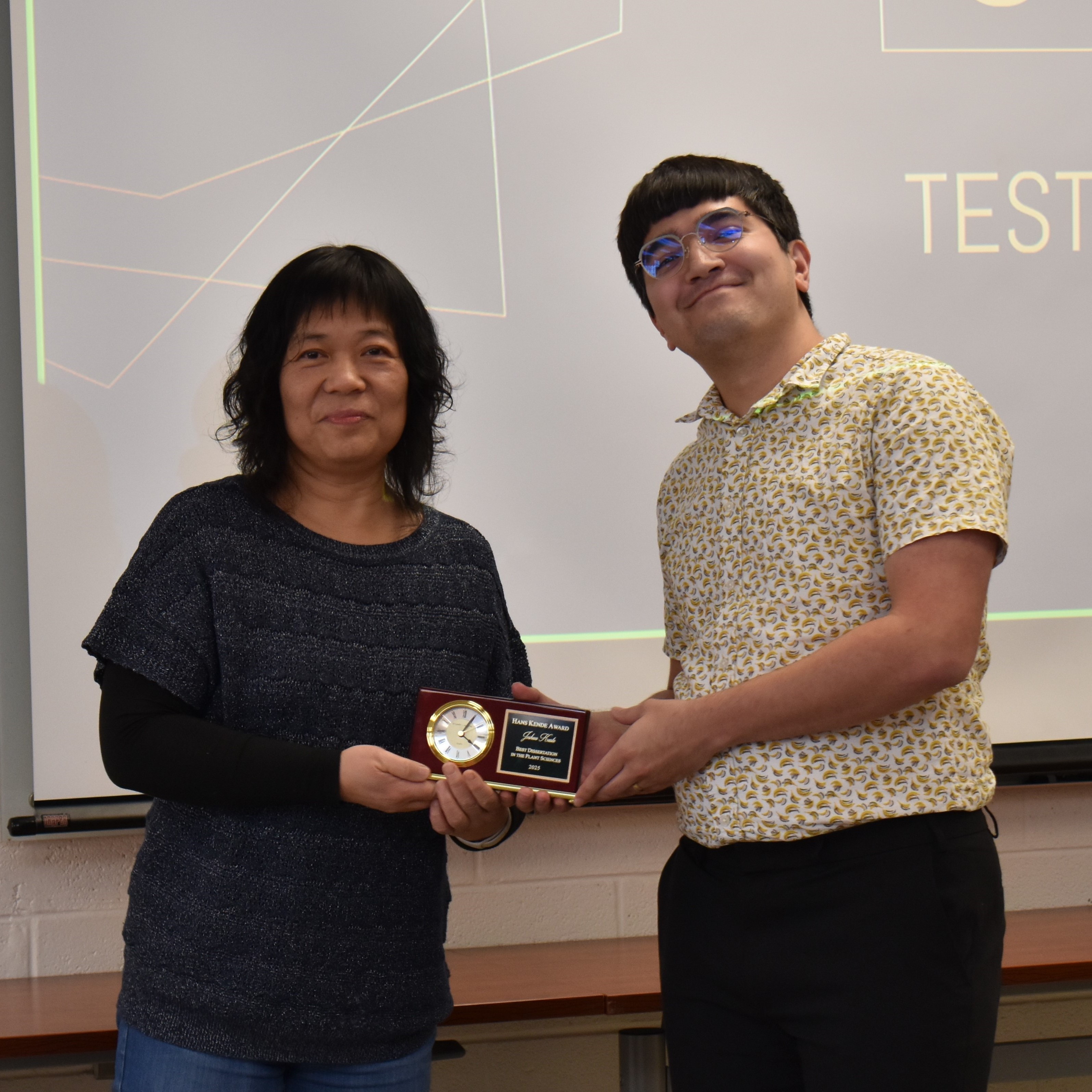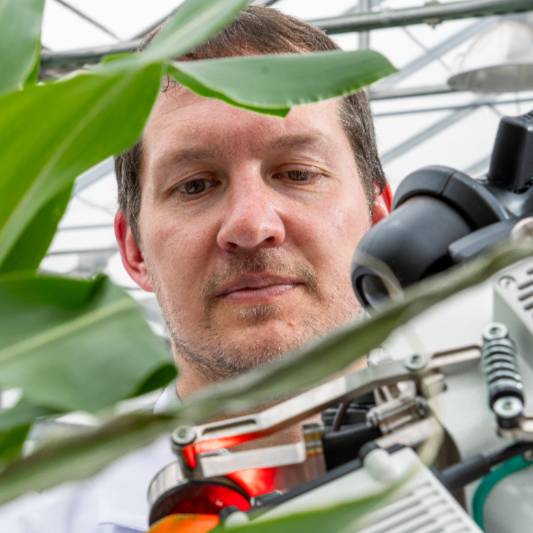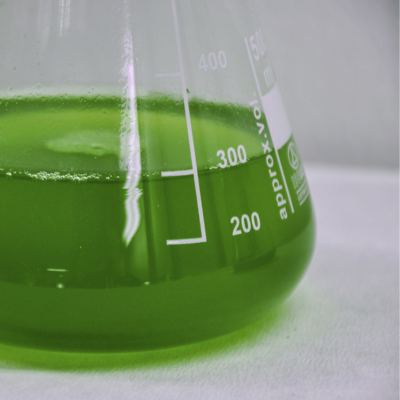Leah Johnson receives the 2023 Kende award
Leah Johnson is the 2023 recipient of the Kende Award, which acknowledges the best doctoral dissertation in plant sciences at Michigan State University (MSU) over the last two years.
In addition to receiving a monetary award, Johnson was given the opportunity to present a research seminar on her postdoctoral work on December 4, 2023.
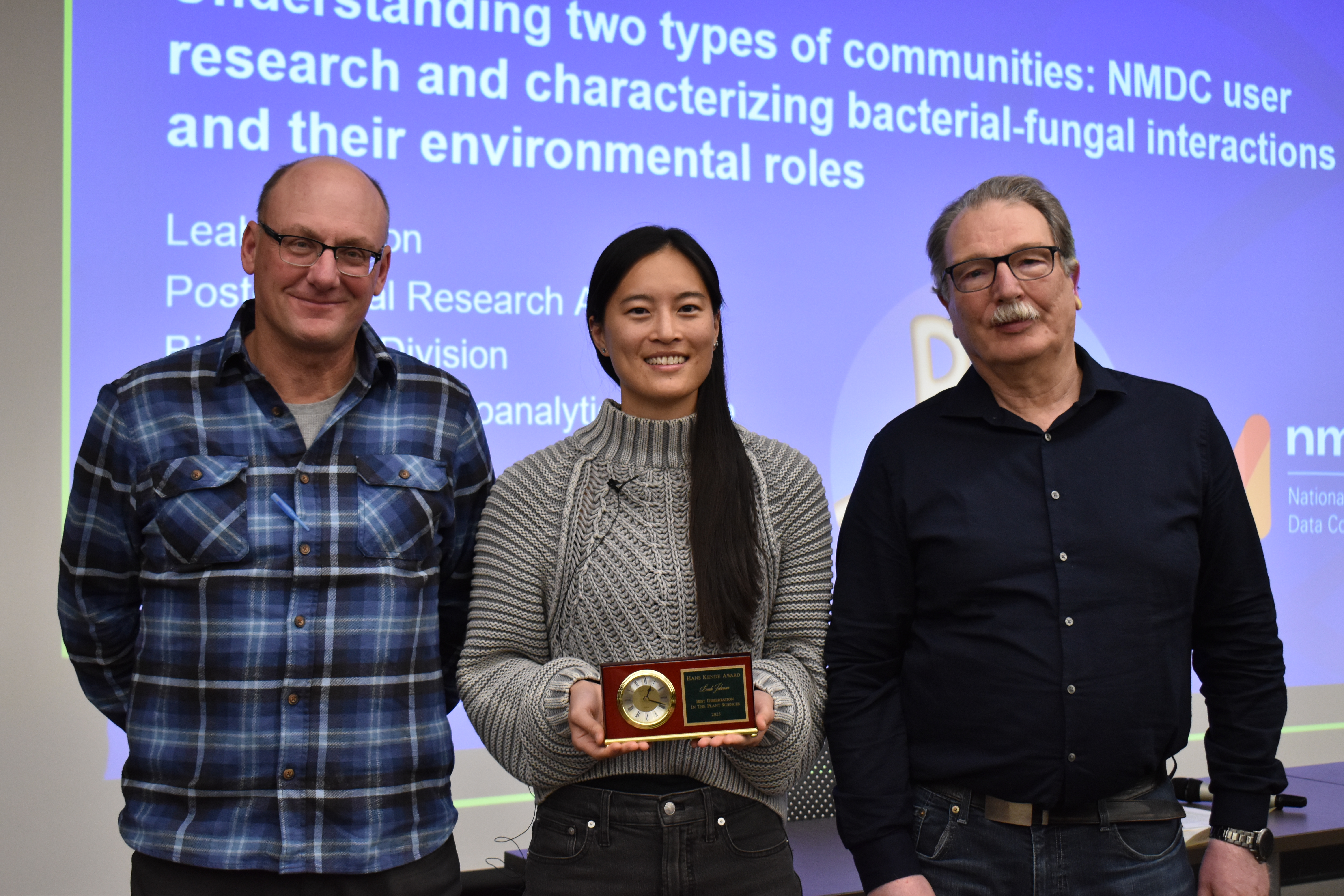
Photo by Kara Headley
“I was very honored to have been selected for this award, especially because I went to graduate school here with so many amazing researchers,” Johnson said during her seminar.
Johnson obtained her Ph.D. in Cell and Molecular Biology (CMB) as well as Molecular Plant Sciences (MPS) at MSU in 2022, where she was advised by MSU Foundation Professor Gregg Howe. She is being recognized for her thesis on the regulation of specialized metabolism and plant defense by the hormone jasmonate in Arabidopsis thaliana.
“We found that subsets of the families [JAZ and MYC] in the jasmonate signaling pathway differentially regulate responses to insects versus necrotrophic pathogens,” Johnson said in a previous article on her research. “This suggests that these families obtained distinct regulatory functions at some point in plant evolutionary history and suggests a mechanism for how plants can respond correctly to different stressors.”
Her thesis work has potential to be applied to crop plants, activating defenses to insects or pathogens, without expending too much energy, to help them fight off these threats.
“Hans Kende was not only an excellent scientist and role model but also unselfish in his commitment to service and community engagement,” writes Howe in his letter recommending Johnson for the award. “It is thus relevant to comment on Leah’s passion for community outreach and STEM education.”
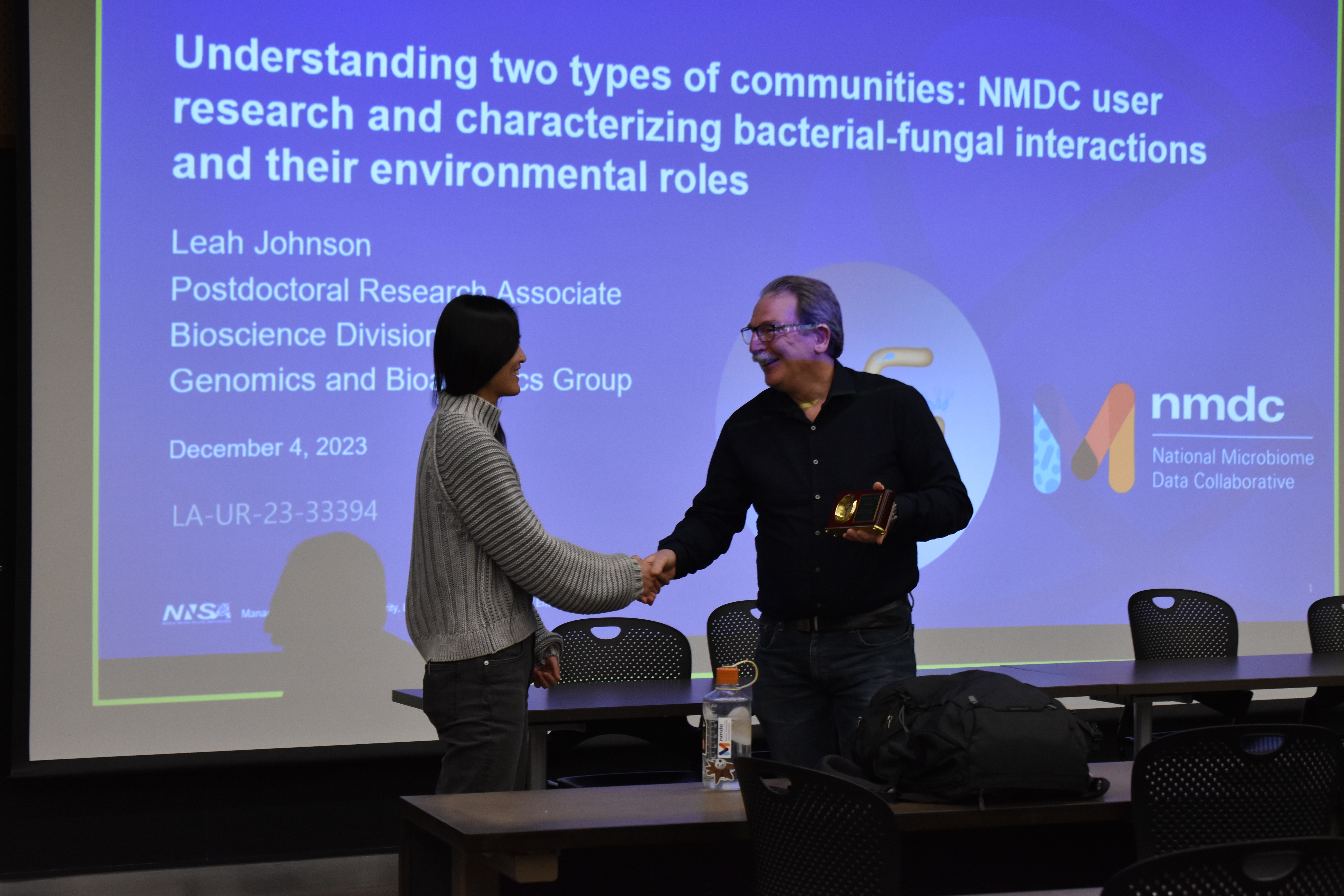
Photo by Kara Headley
She was involved in community outreach events, such as Graduate Women in Science Girl’s Math and Science Day and Fascination of Plants Day. She was an early member of the MPS program and was instrumental in the establishment of the Association of Molecular Plant Science Students, known as AMPSS. Johnson additionally played a big role in the establishment of the CMB Graduate Student Organization, becoming its first secretary and taking a lead in organizing the first CMB symposium.
“Suffice it say that I have been amazed – and in fact inspired – by Leah’s level of unselfish dedication to engaging a broad range of communities in STEM education,” Howe writes. “Equally impressive is that she has managed to pull this off while maintaining both an excellent academic record and robust progress toward her PhD research project.”
Johnson is currently in a postdoctoral research position at Los Alamos National Laboratory. There, she spends half her time working in science communication and community engagement with the National Microbiome Data Collaborative, a microbiome data sharing network that supports data standards, robust infrastructure, and community building, and the other half studying bacterial-fungal interactions.
“I am delighted that Dr. Johnson is the recipient of this year’s Hans Kende Award and I congratulate her on behalf of the entire PRL,” said Christoph Benning, director of the PRL. “During her PhD at MSU, Dr. Johnson has not only made important contributions to our understanding of plant defense hormone action, but she also engaged extensively in outreach activities. In her new position at Los Alamos, she continues to build a dual career path by engaging in science communication while exploring fungal-bacterial interactions and she has become a role model for others seeking diverse scientific careers.”
